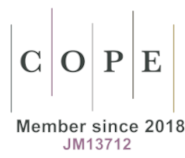U.S. Foreign Policy Towards North Korea
DOI:
https://doi.org/10.18778/1641-4233.22.05Keywords:
North Korea, nuclear program, missile program, U.S. foreign policy objectives, non-proliferation regime, sanctionsAbstract
The U.S. relations to Democratic People’s Republic of Korea (DPRK) are since the end of the Cold War revolving around achieving a state of nuclear free Korean peninsula. As non-proliferation is a long term of American foreign policy, relations to North Korea could be categorized primarily under this umbrella. However, the issue of North Korean political system also plays role as it belongs to the other important, more normative category of U.S. foreign policy which is the protection of human rights and spreading of democracy and liberal values. In addition, the North Korean issue influences U.S. relations and interests in broader region of Northeast Asia, its bilateral alliances with South Korea (Republic of Korea, ROK) and Japan as well as sensitive and complex relations to People’s Republic of China. As the current administration of president Donald J. Trump published its National security strategy and was fully occupied with the situation on Korean peninsula in its first year, the aim of the paper is to analyse the changes in evolution of U.S. North Korean policy under last three administrations, look at the different strategies adopted in order to achieve the same aim, the denuclearization. The paper does not provide a thorough analysis, neither looks at all documents adopted and presented in the U.S. or within the U.N. It more focuses on the general principles of particular strategies, most significant events in mutual relations as recorded by involved governmental officials and also weaknesses of these strategies as none has achieved desirable result. In conclusion, several options for current administration are drawn, however all of them require significant compromises and could be accompanied with series of setbacks dangerous for regional stability and U.S. position in the region.
Downloads
References
Agreed Framework between the United States of America and Democratic People’s Republic of Korea, 1994. Web. http://www.iaea.org/Publications/Documents/Infcircs/Others/infcirc457.pdf
Google Scholar
Albright, Madeleine. The Debate over How to Deal with North Korea. Interview: Frontline. 27, March 2003. Web. http://www.pbs.org/wgbh/pages/frontline/shows/kim/interviews/albright.html
Google Scholar
Atlas, Terry, and Siegfried, Hecker, Dealing With Russia and North Korea: An Interview With Siegfried Hecker, “Arms Control Today”, vol. 46, no. 9 (2016), pp. 36–38. Web. http://www.jstor.org/stable/24878344
Google Scholar
Bush, George W. Address Before a Joint Session of the Congress on the State of the Union. Washington: State Union Adress. Web. http://www.presidency.ucsb.edu/ws/index.php?pid=29644
Google Scholar
Bush, George W. Statement on Completion of the North Korea Policy Review. Washington. Web. http://www.presidency.ucsb.edu/ws/index.php?pid=45819
Google Scholar
Carter, Jimmy. The Baffling “Hermit Kingdom.” Interview: Frontline. 21, March 2003. Web. http://www.pbs.org/wgbh/pages/frontline/shows/kim/interviews/carter.html
Google Scholar
Crail, Peter. US, North Korea hold bilateral talks, “Arms Control Today”, vol. 41, no. 7 (September 2011), pp. 39–40. Web. http://www.jstor.org/stable/pdf/23629122.pdf
Google Scholar
DPRK FM on Its Stand to Suspend Its Participation in Six-party Talks for Indefinite Period. Korean Central News Agency, 2005. Web. http://www.kcna.co.jp/item/2005/200502/news02/11.htm
Google Scholar
DPRK Foreign Ministry Declares Strong Counter-Measures against UNSC’s “Resolution 1874”. Korean Central News Agency, 2009. Web. http://www.kcna.co.jp/index-e.htm
Google Scholar
DPRK – Russia Joint Declaration, 2000. Web. http://www1.korea-np.co.jp/143th_issue/2000072101.htm
Google Scholar
DPRK Successfully Conducts Underground Nuclear Test. Korean Central News Agency, 2006. Web. http://www.kcna.co.jp/index-e.htm
Google Scholar
Fitzpatrick, Mark. Leap Day in North Korea. Foreign Policy Argument. Web. http://foreignpolicy.com/2012/02/29/leap-day-in-north-korea/
Google Scholar
Fitzpatrick, Mark. Obama’s Prime Nonproliferation Failure, “Arms Control Today”, vol. 46, no. 10 (2016), p. 11. Web. http://www.jstor.org/stable/44155151
Google Scholar
Galluci, Robert L. The Debate over How to Deal with North Korea. Interview: Frontline. 5, March 2003. Web. http://www.pbs.org/wgbh/pages/frontline/shows/kim/interviews/gallucci.html
Google Scholar
Han, Yong-Sup. North Korea Behavior in Nuclear Negotiation, “The Nonproliferation Review”, vol. 7, no. 1, (2000), pp. 41–54. Web. https://www.nonproliferation.org/wp-content/uploads/npr/han71.pdf
Google Scholar
DOI: https://doi.org/10.1080/10736700008436793
Independent Task Force Report No. 64. U.S. Policy Toward Korean Peninsula (2010). Web. http://cns.miis.edu/inventory/pdfs/koreanuc.pdf
Google Scholar
Kim, Sung Chul and Kang, David. Engagement with North Korea. A Viable alternative. Albany: State University of New York Press, 2009
Google Scholar
Klinger, Bruce. Deny, decieve, and delay – North Korea’s nuclear negotiation strategy. “The Journal of East Asian Affairs”, vol. 26, no. 2, Fall/Winter 2012.
Google Scholar
Lee, Chae-Jin. A Troubled Peace. U.S. policy and the two Koreas. Baltimore: The John Hopkins University Press, 2006.
Google Scholar
Lynch, Column and De Luca, Dan. With U.S. due to Trump’s latest sanktions, “Foreign Policy”, December 13, 2017. Web. http://foreignpolicy.com/2017/12/13/north-korea-had-spurned-talks-with-u-s-due-to-trumps-latest-sanctions/
Google Scholar
DOI: https://doi.org/10.12968/indn.2017.9.12
Meyer, Patrik K. U.S. Threat of War on North Korea: Fulfilling‚ Rocket Man‘ Kim Jong Un’s Wishes, “The Diplomat”, September 27, 2017. Web. https://thediplomat.com/2017/09/us-threat-of-war-on-north-korea-fulfilling-rocket-man-kim-jong-uns-wishes/
Google Scholar
Miller, Steven E., Stephen W. Bosworth, and Siegfried S. Hecker. Dealing with North Korea’s Nuclear Program. “Bulletin of the American Academy of Arts and Sciences”, vol. 65, no. 4 (2012), pp. 12–17. Web. http://www.jstor.org/stable/23359193
Google Scholar
Nikish, Larry. A. Korea: U.S. – South Korea Relations: Issue for Congress, CRS Issue Brief for Congress IB98045. Washington: Congressional Research Service, 2005. Web. https://fas.org/sgp/crs/row/IB98045.pdf
Google Scholar
Non Proliferation Treaty. Web. https://www.un.org/disarmament/wmd/nuclear/npt/text
Google Scholar
Opening Statement by Dr. Condoleezza Rice. Senate Foreign Relation Committee, January 18, 2005. Web. http://foreign.senate.gov/testimony/2005/RiceTestimony050118.pdf
Google Scholar
Prichard, Charles. Failed Diplomacy. The tragic story of how North Korea got the bomb. Washington: Brookings Institution Press, 2007.
Google Scholar
Qiunones, Kenneth. Dualism in the Bush Administration North Korea Policy. “Asian Perspective”, vol. 27, no. 1, 2003.
Google Scholar
Remarks by President Bush and President Kwasniewski. The White House, Office of the Press Secretary, January 27, 2004. Web. http://poland.usembassy.gov/poland/bush_kwas_transcr.html
Google Scholar
Tobey, William. Obama’s ‘strategic patience’ on North Korea is turning into strategic neglect. “Foreign Policy”, February 14, 2013. Web. http://foreignpolicy.com/2013/02/14/obamas-strategic-patience-on-north-korea-is-turning-into-strategic-neglect/
Google Scholar
Wit, Joel S. and Poneman, Daniel B. and Galluci, Robert L. Geoing Critical. The first North Korean nuclear crisis. Washington: Brookings Institution Press, 2004.
Google Scholar
Downloads
Published
How to Cite
Issue
Section
License
Copyright (c) 2018 International Studies. Interdisciplinary Political and Cultural Journal

This work is licensed under a Creative Commons Attribution-NonCommercial-NoDerivatives 4.0 International License.

















